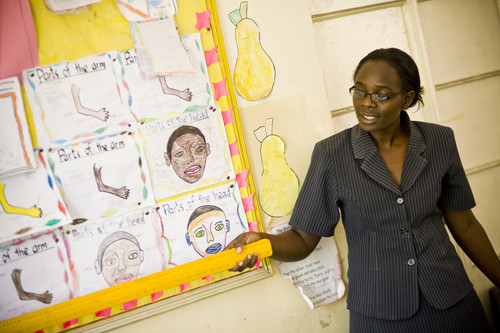
As well as providing a model of effective teaching, demonstrating effective teaching behaviour involves being able to:
- demonstrate how to incorporate a range of approaches and techniques to provide the most effective learning experience
- relate teaching and learning to research and theory
- provide tailored guidance, support and advice related to the developmental needs of teachers
- gain the trust of teachers through shared understanding of the difficulties and challenges in the teaching context.
The knowledge, skills and classroom experience you already have as a teacher provide a good foundation for developing this professional practice. For example:
- analysing learner needs
- selecting approaches and techniques which meet learner needs and learning outcomes
- communicating effectively
- creating a supportive and inclusive learning environment
- planning, managing and assessing learning
- dealing with issues and challenges.
As a first step in preparing for the transition from teacher to teacher educator, take a look at our Continuing Professional Development (CPD) Framework for Teachers which details 12 professional practices.
Once you have looked at this framework and thought about your strengths and areas for development you will have an idea of what you would be able to offer to other teachers. Are you ready to make the transition from teacher to teacher educator? Below are some ideas to help you.
Theory and practice
How does theory relate to practice? As a teacher educator you will need to be able to demonstrate a range of teaching approaches and classroom techniques. It is important that you are familiar with the theories which underpin these to enable you to guide and advise teachers on how to select those which are most valid for their contexts and which will help them to achieve their learning outcomes.
Talk to your colleagues – look at the range of approaches and techniques you all apply in the classroom. Which theories underpin them? Engaging with your colleagues to talk about why you do what you do in the classroom is a good way of exploring the relationship between theory and classroom practice. Why not start a research circle with your colleagues, where you read about a theory or an area of research and discuss its implications for the classroom? To help you with this, check out the British Council’s extensive collection of publications, including research papers. These are free to download.
Explore our publications collection.
Get involved in Continuing Professional Development (CPD) activities with your colleagues
Do you have opportunities to meet with your colleagues to discuss and share ideas to support professional development? If not could you organise regular CPD meetings? Sharing learning with colleagues is effective not only in developing your communication skills and your understanding of the professional context, but also helps you to gain experience in working with teachers. Meetings can be informal where, for example, you demonstrate an activity or technique you’ve tried out in the classroom which was either successful or did not work.
To understand why something does or does not work, carry out classroom action research and share the results with your colleagues. Sharing classroom action research is a useful way of exploring and examining aspects of teaching and learning with colleagues. It provides a platform for reflection and discussion. It can also help with finding solutions to issues in the classroom.
If meetings are difficult to organise, you can still provide support to your colleagues by helping them with identifying resources they need, working with them to create materials and sharing lesson planning. As you develop your confidence you will be able to take on more CPD activities. Why not use the CPD Framework for Teachers to help your colleagues identify a professional practice they would like to develop? Research this practice to help you design a workshop to deliver to your colleagues.
Check out our resources in the CPD Framework for teachers.
Mentor a teacher
Mentoring has benefits for both mentors and mentees. Using your skills and experience to help a less experienced colleague to grow and develop their teaching knowledge and skills will help you to reflect on and consolidate your own knowledge and skills. Becoming a mentor will help you to develop skills in coaching, and supporting and planning teacher development. Our website provides a range of articles and guidance to get you started.
Take a look at our resources for supporting and mentoring teachers
Don’t forget to check out our CPD Framework for Teacher Educators too.
Below are two tasks to help you to develop your abilities to demonstrate effective teacher behaviour.
This is quite enlightening, I've unconsciously assisted my colleagues with teaching topics they find difficult by sharing my teaching methods and discussing their difficulties and how to overcome them.